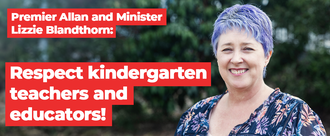- Featured
- Asylum Seekers and Migrants
- Climate and Environmental Justice
- Disability Justice
- Economic Justice
- Education
- First Nations Justice
- Health and Medicare
- International Solidarity
- LGBTIQA+ Rights
- Media and Arts
- Occupational Health and Safety
- Public Services
- Public Transport
- Racial Justice
- Social Justice
- Women's Rights
- Workers' Rights
- More
-
Catholic Ladies' College & VCEA, Grant Us Bargaining Rights NowThe Victorian Catholic Education Authority (VCEA) is seeking to ignore the nearly 19,000 staff who signed a Statement of Support for fair bargaining last year – a clear majority of the 35,000 staff that the VCEA has claimed work in Victorian Catholic education. No good explanation has been provided for this anti-worker stance, and this continued denial of our basic rights is causing deep concern amongst staff in Catholic schools right across the state. As educators, we don’t want to have to take industrial action – but as workers, we know that the internationally-recognised right to do so is what gives us power at the bargaining table, and that without this right we are negotiating with one hand tied behind our back.8 of 100 Signatures
-
Hands off our State Library!Library workers deliver essential services to 2.8 million people in our community each year. They run information services, connect people online, hold free workshops, develop community connections and foster a safe space for people experiencing homelessness and family violence, and deliver services for children and families. The State Library's expertise in family history research and access to heritage collections are also under direct threat. Executives are trying to cut 11 permanent librarian positions, meaning 10 frontline librarians would remain to run Australia's busiest library. They are also cutting essential Visitor Service Officer, Children and Families officers, plus other frontline roles, and proposing to outsource the library's critical information technology team. Frontline library staff are the vital link to the library's 5 million items, and librarians are experts in connecting anyone with the information they need, taking more than 50,000 questions and enquiries annually. Library Executives are also planning to remove public PCs, and visitors will have to order collection items via an "automated system". Meanwhile, millions of taxpayer dollars are proposed to be spent on deceptive and ill-aligned "digital" roles, pay rises for executives, and flashy websites with no substance. State libraries with free, uncensored access to information are essential to our democracy. And in a time of information overload, AI and misinformation, we need librarians more than ever. We need librarians in libraries. To foster critical thinking skills, to know the stories of where we live, and to navigate an online world increasingly full of falsehoods and manipulation, places like the State Library are essential. Victoria’s State Library should serve the public interest. It must not be allowed to neglect its core purpose of preserving and providing easy access to knowledge. We reject these inept attempts to shift control of our cultural memory, our history and our factual record to private vendors and ill-conceived digital systems. Tell the acting executives: hands off our State Library!4,796 of 5,000 SignaturesCreated by CPSU Victoria
-
Stop Victoria’s public school funding cuts• Every student’s learning and wellbeing is at risk when schools don’t have the resources to meet the diverse needs of all learners, including more 1:1 support from teachers and education support staff. • Teacher shortages will only worsen, and support staff and school leaders will remain undervalued, unless the state government invests in the profession. • It’s about fairness and the futures of children and young people, who deserve properly funded public schools, not a government that shirks its responsibility while calling Victoria the ‘education state’. We call on Premier Allan and Treasurer Symes to keep their full funding promise and reverse the decision to delay $2.4 billion worth of resources for our schools. Sign our petition and send a clear message to the Premier and the Treasurer: we won’t accept Victorian public schools being the lowest funded in the country. Children and young people – and their families, teachers, education support staff, and school leaders – deserve better than that.4,192 of 5,000 SignaturesCreated by AEU Victoria
-
UC Staff Concerns about the Block ModelWe are concerned that: • academic workloads are already at breaking point. We are concerned about potential efforts to weaken existing workload protections, rather than strengthening them, through Enterprise Bargaining. The introduction of a Block Model has the potential to make a significant problem worse. • professional staff workloads will be negatively affected by the introduction of a Block Model. These concerns include a lack of information on how processes and systems for admissions, census dates and support cycles will be affected. This creates concern that professional staff will be required to accept unreasonable workloads, just to make a Block Model work. • there is not a plan to resource any change, despite clear feedback that significant resourcing will be required. Without it, staff will likely be left to pick up the slack on top of existing workloads. • UC has a very recent history of financial issues stemming from throwing millions at a shiny new education initiative – this is a concerning path to go down again. • insufficient consideration has been given to what a Block Model means for academic integrity, especially in the age of AI. These concerns include that there may not be time to sufficiently address instances of suspected plagiarism or integrity issues, including through University processes, due of the relentless pressure to turn around marking quickly to reset for the next Block. • there has not been sufficient attention given to prerequisites, course design, and professional accreditation. Some disciplines face significant risks which have not been adequately explored. • a Block Model focuses extensively on teaching, without enough consideration of research. The potential for increases in teaching loads could compromise UC’s research, as well as research-informed teaching for students. • there has not been adequate consideration of placements or internships, and how they would work with a Block Model. • there would be impacts to staff resulting from any decision to embark on more University-wide change, following the job cuts of 2024 and 2025. Now is the time for stability, as constant change and uncertainty affects staff wellbeing. • the introduction of a Block Model would prioritise customer satisfaction over pedagogy and meaningful learning. There is concerning potential for a Block Model to affect course quality and outcomes. This could affect the reputation of UC’s degrees. • any attempt to limit a Block Model to postgraduate courses would likely cause more problems than it solves, as it fails to consider circumstances where undergraduate and postgraduate units are co-taught. Teaching staff may be required to work across multiple inconsistent teaching patterns. Professional staff who support the delivery of teaching would be severely impacted. Both academic and professional staff are concerned this could make effective workload planning impossible. • a Block Model means far greater disruption for staff or students due to illness or misadventure, as a short absence would mean missing more content than otherwise. This makes it difficult to catch up and increases pressure on people to come to campus while ill. • there isn’t a clear rationale for change. UC’s issues are not those of VU or SCU, and the University has conceded that it is not clear that a Block Model would recover costs through increased student load or retention. The potential benefits to the University have not been adequately articulated. The information provided to UC staff thus far has not addressed these concerns. While these genuine and reasonable concerns remain unaddressed, and in the absence of a compelling case backed by adequate and significant resourcing to facilitate the transition, we believe a Block Model should not be introduced at the University of Canberra.81 of 100 SignaturesCreated by NTEU ACT
-
Don't Destroy the Monash Sustainable Development InstituteWe work to understand, influence and transform systems to achieve sustainable development in Australia and our region. We do this by collaborating with government, industry, academic and civil society partners, and establish transdisciplinary teams to identify pathways and innovative solutions to help the world achieve the 2030 Agenda for Sustainable Development. Our partnership approach has seen us win awards for our impact focus. MSDI aims to achieve sustainable development in Australia and our region by understanding, influencing and transforming the systems that are embedded in our society.4 of 100 SignaturesCreated by National Tertiary Education Union
-
Petition to ANU CouncilIn support of our petition, we observe that: • ANU Council has the entire control and management of the University and is required to act in all matters concerning the ANU in the way it thinks will best promote the interests of the ANU; • Staff, students and members of the community have reasonable and genuinely held concerns about the direction of our national university. Many of these concerns relate to the delivery of Renew ANU, which has been destructive and harmful to staff, students and the capacity of the University to perform its functions; and • A range of issues relating to transparency, accountability, governance and leadership at the ANU have been widely reported, and have not been adequately addressed. These are a source of ongoing damage to the reputation and standing of our national university, which is now subject to an unprecedented investigation by TEQSA. For these reasons we conclude it is reasonable, necessary and in the best interests of the ANU for ANU Council to fulfil its duties by immediately adopting the course of action proposed by this petition.2,063 of 3,000 SignaturesCreated by NTEU ANU Branch
-
Open Letter to Reverse Curtin's Unfair Changes to Psychology ExamsThis issue matters because it strikes at the core of fairness, trust, and academic integrity at Curtin. Students enrolled this semester on the reasonable expectation, set out in their Unit Outlines, that the advertised assessment formats would apply. Changing the format mid-semester, especially from a flexible take-home model to a rigid closed-book, invigilated system, not only disrupts carefully planned study and work routines but also imposes new financial, logistical, and emotional burdens. It erodes confidence in Curtin’s commitment to transparency and student partnership, and sets a dangerous precedent where major academic changes can be imposed without proper notice or consultation. For the wellbeing and success of students, and the credibility of Curtin’s processes, this decision must be reversed.1,244 of 2,000 SignaturesCreated by Curtin Student Guild
-
Keep Bulldogs Community Children’s Centre Not-for-ProfitBackground The Western Bulldogs AFL Club (yep, the club) put forward a resolution at the 17 June Maribyrnong Council meeting requesting that the Council remove the requirement for the early learning provider to be a not-for-profit organisation, and to extend lease period to 10 years (up from 5). In a nutshell, council voted in support of this, with a 28 day consultation period. This means that a commercial for-profit provider could soon be running this centre - for a whole decade - before we can have a say in changing it. What’s the issue? • The current provider now needs to compete against for-profit companies to manage the centre, which may prioritise profit over the best interests of our community, children, and education staff. • This new lease agreement will effectively remove a council owned asset from community control and place it in the hands of two corporations. • Long term impacts on accessibility for children in the surrounding neighbourhood to long daycare and Kindergarten as the waitlists will no longer be managed through council, which has criteria to protect inclusivity and access. • Disruption to continuity of care for the children at the centre, who have established deep relationships with the experienced educators at Bulldogs CCC. A change in provider is likely to displace employment for existing staff. Why should people care? Bulldogs Community Children’s Centre is more than just a childcare service—it is a valued part of our community. It is a community asset that should remain in the ownership of the community. Western Bulldogs need to reinforce their commitment to Footscray and not put profits over local families.926 of 1,000 SignaturesCreated by Jessica Shan
-
Fair Bargaining Rights for Victorian Catholic Education Workers!Our colleagues across Australia have secured vital improvements to pay and conditions because they have access to the industrial rights that our employers want to deny us. The VCEA is seeking a ‘cooperative’ multi-employer bargaining process, but we’ve seen what that really means: dysfunction and massive delays, a process stacked against us, and deeply unfair constraints on our ability to effectively campaign for a fair and timely outcome. When we last took large-scale industrial action (mirroring protected action taken by government school staff), Catholic employers sought injunctions against our union and individual members were intimidated with the the threat of fines. If we commence bargaining under their so-called ‘cooperative’ model, employers could use this to attempt to prevent us from successfully applying for a Single Interest Authorisation for many months, locking us out of our fundamental industrial rights during the most important stages of bargaining. Employers could apply for that Authorisation now, allowing good faith bargaining to commence this year without denying basic rights to over 30,000 hard-working staff. The VCEA’s refusal to do so isn’t just unfair, it contradicts core Catholic values of dignity, justice, and the right to take industrial action when needed. We must stand up for fair bargaining! Read more here5,910 of 6,000 Signatures
-
Respect kindergarten teachers and educators!The Premier cannot say Victoria is the ‘education state’ and promise parents fee-free 3 and 4-year-old kindergarten without the workforce to deliver it – and that can’t happen without investing in decent wages and working conditions. Delivering for teachers and educators who work in Victoria’s kindergartens means delivering for the children they educate. Everyone knows that for children to succeed at school they require access to high-quality kinder delivered by teachers and educators that are supported, respected and valued. Children benefit the most when their early childhood teachers and educators are well supported, paid a decent wage, and want a long term career in early childhood education. Supporting the teachers and educators who work in Victoria’s kindergartens will benefit children, who will be ready to start school; and parents, who will know their child is getting the best start to their education. - Tracey Webb, Early Childhood Educator and AEU Member11,361 of 15,000 Signatures
-
Protect Freedom of Expression at UTS: Stop the Changes to the Campus PolicyWe reject the assumption that indoor protests are inherently unsafe. Staff and students have a long-standing record of cooperating with UTS to manage risks at protests, including ensuring access to buildings and emergency exits. A blanket ban is not a safety measure - it is an attempt to suppress dissent. Universities are meant to be places of free inquiry, challenge, and robust debate. Political protest has always been part of that tradition. UTS has legal and ethical responsibilities to protect freedom of political expression under: • The Higher Education Support Amendment (Freedom of Speech) Bill 2020 • The Enterprise Agreement between UTS staff and management • Implied rights of political communication under the Australian Constitution The current protest policy already allows UTS Security to manage risks appropriately. Clause 4.57, for example, enables the university to identify suitable spaces for demonstrations and implement safety plans. This balanced approach works. Replacing it with a prohibitive, one-size-fits-all ban threatens the ability of students and staff to protest openly and safely, and opens the door to arbitrary and punitive responses to any political expression inside university buildings. Students and staff will continue to protest when injustice occurs. But driving protest underground, or creating vague restrictions, makes it more dangerous for everyone. Cooperation is the safer approach. We stand for a UTS where safety and freedom of expression can coexist. We urge the university to work with, not against, the campus community to uphold these principles.153 of 200 SignaturesCreated by President, UTS Students' Association
-
Save SA Public Sector PsychologyPublic psychologists provide specialist assessment and treatment to people across the lifespan. We are essential for: 1. learning assessments, determining special school placements, behavioural consultancy, and mental health support in schools 2. developmental and autism diagnostic assessments in hospitals 3. mental health assessment and treatment for children, adolescents, adults, and older persons in hospital and the community 4. psychological and neuropsychological assessment and treatment in hospitals and community settings, for physical health and rehabilitation. 5. child protection and forensic assessments for children and young people where there is suspected abuse and/or neglect 6. forensic assessments in juvenile justice and adult corrections 7. psychological support for perinatal, infant, and child and youth community health Imagine not having psychologists in the SA public sector to meet these critical needs! South Australians don't deserve to miss out on specialist care. Instead, they are being forced to go without or to access psychological assessment or treatment from the private sector which we know is unaffordable for many. Without our vital psychological services in the public sector, there will be even more pressure on the health, education, and child protection systems, and it places vulnerable children, adults, and families at further risk. There will be more children on wait lists for diagnostic assessments while missing out on important early intervention, and vulnerable adults will not have the care at the time they need it and fall into acute mental health crisis. SA cannot afford to increase ramping pressure or allow our children to fall behind. SA psychologists feel privileged and honoured to serve the public; but now we ask for your assistance and support to keep our workforce strong and thriving so that we can continue to help you in the future. Join the campaign. Sign the petition and let the SA Government know that you want them to respect psychologists and save public psychology.4,081 of 5,000 SignaturesCreated by South Australian Psychologists Association
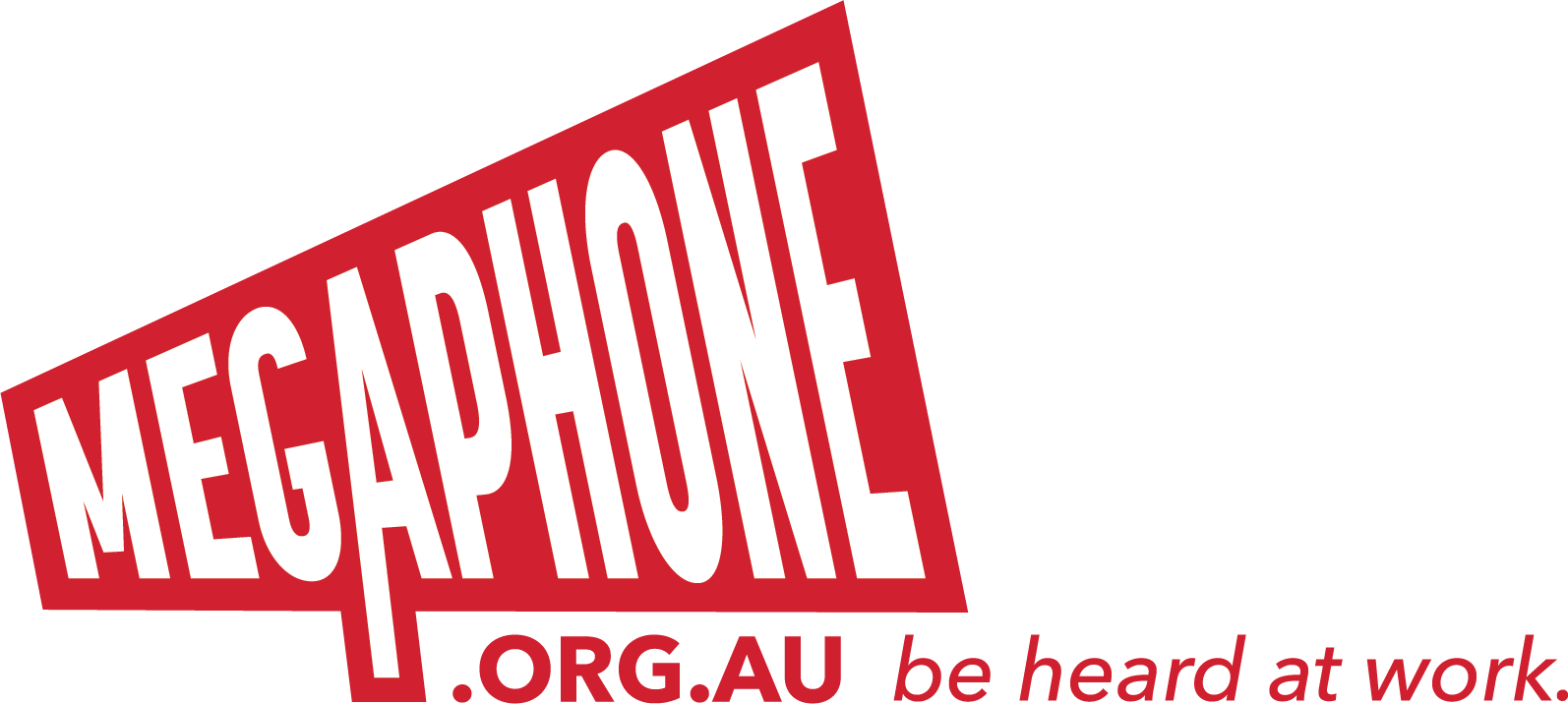

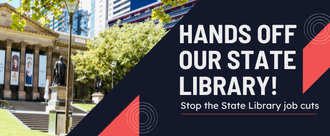

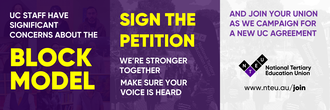


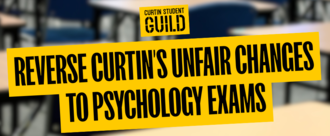

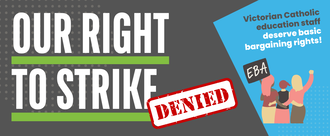.png)
